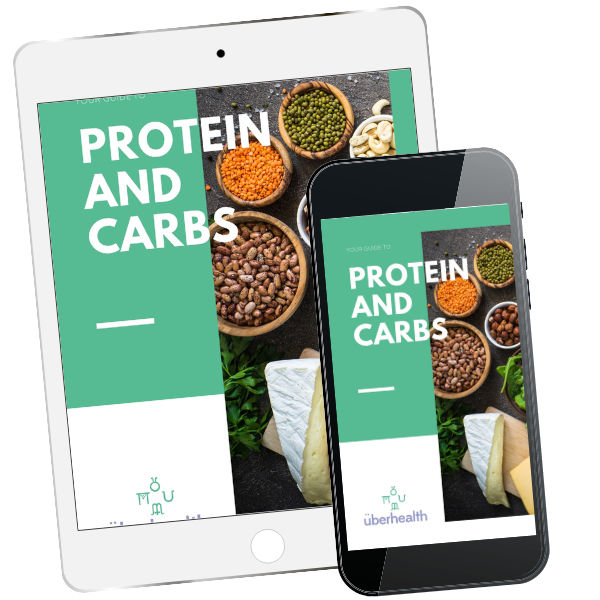Top ingredients every runner should eat
Running is a demanding sport and your diet plays an important role in helping you reach your goals. If you’re serious about staying strong, preventing injury and recovering fast, you need to pay attention to what you eat. These are the top foods you should consider if you’re a runner, according to Kira Sutherland, sports nutritionist, naturopath and Blackmores Sydney Running Festival expert.
1 MAGNESIUM
In sport, magnesium is specifically used for the burning of glucose as fuel for the body, and for muscle contraction. It should be a mineral of focus for athletes as they can easily become deficient with poor food choices and heavy training loads. To get enough magnesium in your diet look to foods such as dark chocolate, kelp, wheat bran, almonds, cashews, figs, dark green leafy vegetables, wholegrains and legumes.
2 BANANAS
Considered nature’s power bar, bananas are loaded with potassium, which is lost in sweat during exercise. They’re also rich in vitamin B6 and antioxidants, which gives them an edge over sports drinks when it comes to boosting performance and balancing electrolytes. Bananas are a good fuel before exercise or as recovery afterwards.
3 YOGHURT
Not only does it provide vegetarian protein, it’s loaded with calcium. Yoghurt’s biggest benefit for runners, however, is the live “good” bacteria – probiotics – that promote good gut health. Opt for plain or Greek yoghurt and add your own healthy toppings, like fresh fruit and a little honey. If you struggle to consume adequate amounts of probiotics in your diet, it’s worth considering a daily probiotic supplement to support a healthy immune system.
4 SALMON
A great source of protein and also omega-3 essential fatty acids, which we don’t often get from other foods. Canned salmon, which you can easily add to salads, is a convenient choice if you don’t have time to cook fresh salmon. If you’re struggling to reach the minimum recommended intake of 2-3 servings of fish per week, an omega-3 supplement can help you increase your levels of omega-3s for general health and wellbeing.
5 KALE
It contains folate, antioxidants and vitamin K2 – all for very minimal kilojoules. It’s also a good source of fibre. Use it as a salad base, which you can then add other colourful vegetables to, for a healthier boost.
6 WHOLEGRAIN PASTA
Before a race, a high-carb meal fills up your glycogen stores (your stored carbohydrate), which provides you with the energy you need during a marathon. Make sure to choose the wholegrain pasta variety, as it’ll keep you full for longer.
Not yet registered for the Blackmores Sydney Running Festival on 17 September 2017? Sign up here. Speak to your healthcare practitioner for more info about choosing the right supplements for you.
Original post over at Women's Fitness
1 MAGNESIUM
In sport, magnesium is specifically used for the burning of glucose as fuel for the body, and for muscle contraction. It should be a mineral of focus for athletes as they can easily become deficient with poor food choices and heavy training loads. To get enough magnesium in your diet look to foods such as dark chocolate, kelp, wheat bran, almonds, cashews, figs, dark green leafy vegetables, wholegrains and legumes.
2 BANANAS
Considered nature’s power bar, bananas are loaded with potassium, which is lost in sweat during exercise. They’re also rich in vitamin B6 and antioxidants, which gives them an edge over sports drinks when it comes to boosting performance and balancing electrolytes. Bananas are a good fuel before exercise or as recovery afterwards.
3 YOGHURT
Not only does it provide vegetarian protein, it’s loaded with calcium. Yoghurt’s biggest benefit for runners, however, is the live “good” bacteria – probiotics – that promote good gut health. Opt for plain or Greek yoghurt and add your own healthy toppings, like fresh fruit and a little honey. If you struggle to consume adequate amounts of probiotics in your diet, it’s worth considering a daily probiotic supplement to support a healthy immune system.
4 SALMON
A great source of protein and also omega-3 essential fatty acids, which we don’t often get from other foods. Canned salmon, which you can easily add to salads, is a convenient choice if you don’t have time to cook fresh salmon. If you’re struggling to reach the minimum recommended intake of 2-3 servings of fish per week, an omega-3 supplement can help you increase your levels of omega-3s for general health and wellbeing.
5 KALE
It contains folate, antioxidants and vitamin K2 – all for very minimal kilojoules. It’s also a good source of fibre. Use it as a salad base, which you can then add other colourful vegetables to, for a healthier boost.
6 WHOLEGRAIN PASTA
Before a race, a high-carb meal fills up your glycogen stores (your stored carbohydrate), which provides you with the energy you need during a marathon. Make sure to choose the wholegrain pasta variety, as it’ll keep you full for longer.
Not yet registered for the Blackmores Sydney Running Festival on 17 September 2017? Sign up here. Speak to your healthcare practitioner for more info about choosing the right supplements for you.
Original post over at Women's Fitness
FREE RESOURCE
PROTEIN & CARB GUIDE
Guide will be sent to your inbox 📩


